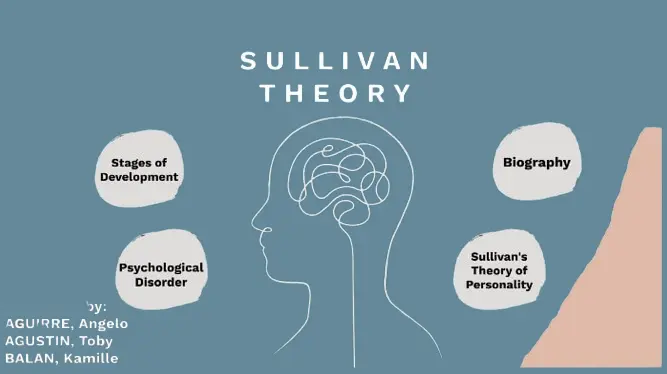When someone intentionally or unintentionally shows that they lack the skills necessary to complete a task, it’s known as Weaponized incompetence, also known as strategic incompetence, and it forces others to take on more work. Usually, this happens in two settings: the home, between couples, and the workplace, among coworkers. Weaponized incompetence invariably results in an uneven distribution of labor.
What is Weaponized Incompetence?
Weaponized incompetence is the deliberate avoidance of accountability by the use of deception, such as feigning incapacity or incompetence, to enable someone else to assist, assume control, or cease assigning work to them. In this sense, the imbalance progressively solidifies.

Weaponized ineptitude is when someone intentionally engages in subpar performance while giving the impression that they are acting incompetently. This strategy aims to make the target appear incapable of carrying out an action, hence taking responsibility and ownership away from the carried out task. For the other people in any relationship—personal, friendship, or professional—this can be difficult and annoying.
Examples of Weaponized incompetence
Here are a few instances when ineptitude turned weapon:
- Cooking: Your spouse prepares a dish, but it’s a boxed dish, such as macaroni and cheese, that’s not nutrient- or health-rich.
- Dusting the house: You ask your spouse to dust the house, but they don’t finish the task well, leaving numerous areas unfinished.
- Sweeping the floor: You ask your companion to sweep the floor, but they take an eternity to finish and whine the entire while.
- Cleaning the dishes: Your significant other waits to clean the dishes till you have finished them.
- Making the bed: Although you ask your partner to do it, you wind up needing to assist them.
- Grocery shopping: You send your significant other grocery shopping, and they forget half of the items on the list.
- Putting groceries away: Your spouse stores groceries haphazardly, not giving any thought to their proper placement.
Seven signs of Weaponized Incompetence
Hearing someone state they’re not sure they can perform a task, don’t know how to do it, or don’t have the time to learn how to do it are just a few indicators that Weaponized incompetence is taking place. The feeling that accountability will soon be transferred to someone else is the only commonality among these indicators.
Seven indicators of Weaponized incompetence are as follows:
1. They Perform Easy Tasks Poorly
A primary indicator of Weaponized incompetence is when someone intentionally performs a task poorly in order to shift the burden on others. You won’t be as inclined to approach them for assistance in the future because it conveys the idea that you can’t trust them with other duties.
2. You Do All or the Most of the Work
It may be an indication of Weaponized incompetence if you find yourself taking on a lot of labor, projects, or duties in any kind of context, including with friends, family, spouses, or coworkers. It could appear more convenient to finish the work ourselves rather than attempting to persuade the other party to do a satisfactory job.

3. You sense that you’ve been duped or used
If you sense that someone is manipulating or taking advantage of you, be mindful that this could be a sign of Weaponized incompetence. When someone intentionally performs poorly, it’s to take advantage of your kindness and control you.
4. You Experience Isolation
Weaponized incompetence could be the reason you feel alone in your efforts to complete necessary activities or initiatives. Certain tasks are frequently assigned to others in various contexts. But it’s definitely a warning sign if you feel alone and unsupported all the time.
5. You Have No Faith in Them
In relationships of any kind, trust is essential. You may rely on someone to satisfy your needs or wants if you have confidence in them. They have demonstrated to you in the past that you can’t rely on them when there is a lack of trust. People are fallible, thus there may be occasions when they genuinely want to help you but are unable to do so for reasons other than ineptitude that can be weaponized. But pay attention to those times when you feel consistently let down.
6. You’re Tired
You start to feel exhausted and burned out when you take on too much responsibility for other people all the time. It is normal and natural for you to feel worn out if you ask significant others in your life for assistance and support and they consistently refuse to give it (apart from situations when there are legitimate obstacles). Everyone needs assistance.
7. You discover that you hear specific phrases frequently
People who abuse Weaponized incompetence (person A) often utilize terms that elicit typical responses from those they abuse (person B).
Those that deploy Weaponized incompetence may use the following phrases:
Person A says:
- I’m not sure how to accomplish it.
- I will make a mess of this.
- You are undoubtedly better suited for this.
- I’m short on time; could you take over?
- I’m going to screw it up if I do this.
- I’m not very skilled at that.
- You should just do it because I did it so poorly the last time.
Person B answers:
- I’ll just carry it out.
- Why do you proceed in that manner?
- You’ve already done it that way.
- You won’t make a mistake, but let me know if you need assistance.
- Give it to me to manage.
- Never mind, I’m capable.
How to handle Weaponized Incompetence
You can handle Weaponized ineptitude in your relationship by taking the following actions:

- Start identifying the pattern: Identify the patterns in your relationships. Observe your partner’s actions and words, as well as how you respond to them.
- Talk about the problem: De Llano advises having frank and transparent communication with your significant other. Emphasize on describing your feelings about their actions and how they can assist in meeting your requirements. You may say something like this: “I feel like I can’t rely on you for any help around the house.” In this regard, I need your support and assistance.
- Listen actively: Engage in active listening by giving your partner a chance to share their viewpoint. Engage in active listening while letting them share their feelings and ideas. Even if you disagree with their actions, try to comprehend the fundamental causes of them.
- Set expectations and boundaries: Within the relationship, be explicit in defining and communicating your expectations and boundaries. Talk about what duties you believe are fair and equitable. By the end of the conversation, try to come to an agreement on what is expected of each of you.
- Evaluate progress: Regularly check in with each other to discuss the advancements achieved toward a more equitable distribution of tasks. Talk about what is and isn’t functioning as well as what may be altered or improved.
- Seek professional assistance: If the problem continues or communication becomes more difficult, you might want to think about consulting a couple’s therapist. A professional may offer an unbiased viewpoint, lead fruitful discussions, tackle more complex problems, and assist in resolving disputes.
Why Individuals Rely on Weaponized Incapability

- Avoid Accountability: Weaponized ineptitude offers a person an “easy out” if they choose to avoid accepting accountability or bearing the blame.
- Provide Distractions: Weaponized ineptitude can occasionally be used to divert attention away from other transgressions or activities that the person would prefer never be exposed to.
- Acquire or Preserve Power: People in positions of leadership may utilize it to keep their status. They can keep the competitors at bay if they can persuade others not to aim after their position.
- Manipulate Others: In order to obtain favors or compassion, Weaponized incompetence is frequently employed to manipulate emotions. It’s a strategy people employ to get special attention or assistance from others, whether it’s for domestic tasks or a job assignment.
- Reduced Anticipations: Reducing the expectations of individuals in one’s vicinity frequently results in the ability to act with less pressure or scrutiny.
- Learned Behavior: People may impart to others the belief that they will handle all the labor. This is especially prevalent when dealing with micromanagers who constantly want to take charge and replace someone, depriving them of the opportunity and drive to learn.
The Mentality Underpinning Weaponized Incapability
According to some specialists, humans acquire the mindset of armed ineptitude early in life. It can even begin with children, according to Anjula Mutanda, a psychotherapist . According to Mutanda, “I think the roots of this can start quite young.” “A child might discover, for instance, that they can avoid cleaning their bedroom by doing it really poorly, and this kind of behavior can persist into adulthood.”
A person may acquire Weaponized incompetence as an adult even if they did not participate in it as a youngster. Marital and family therapist Carrie Krawiec asserts that adults are more inclined to stick with a particular method after they use it to accomplish what they desire. According to Krawiec, “a person is the beneficiary of negative reinforcement when their load is lightened by acting foolish.” “A person is more likely to repeat their behavior when they discover they can’t rely on others and that they can only find satisfaction in doing things their own way.”



